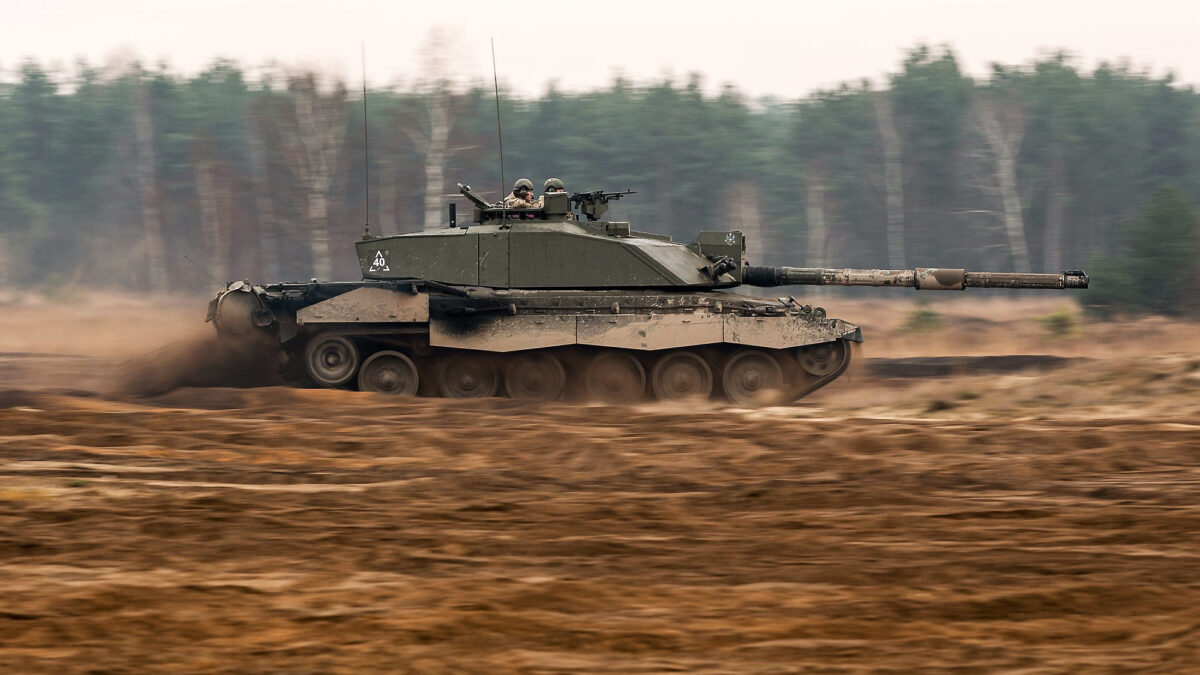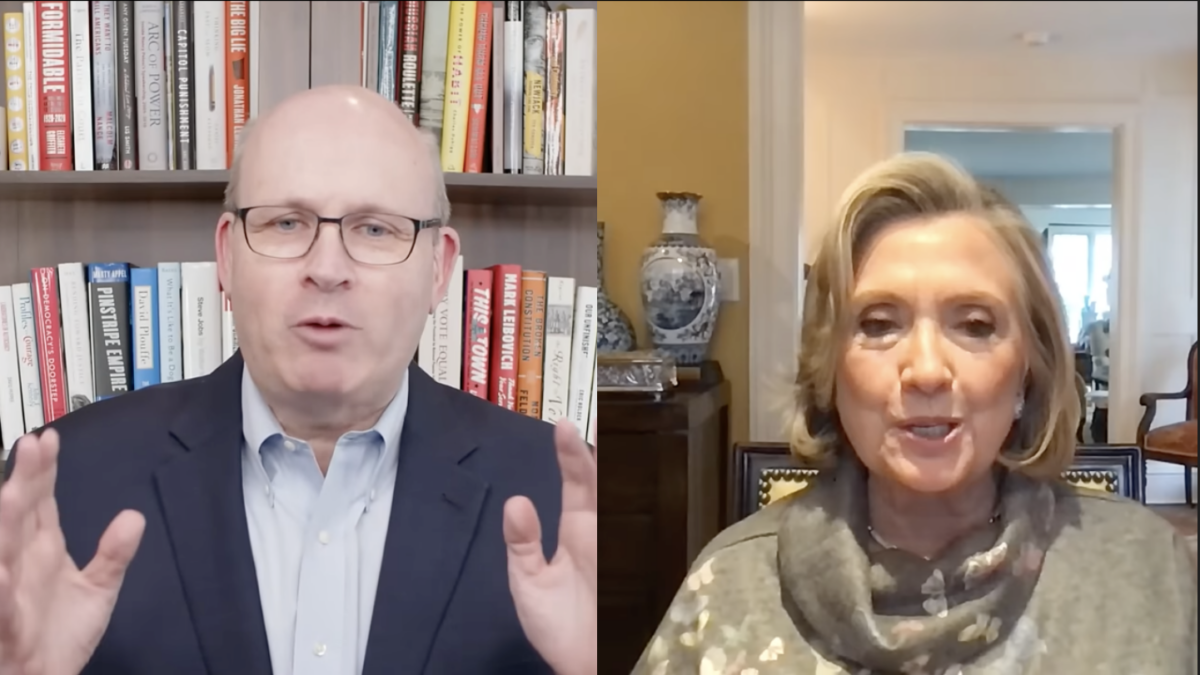There’s a growing chorus of voices, mostly in Washington and among the corporate press, arguing the United States and our North Atlantic Treaty Organization (NATO) allies need to do more to assist Ukraine against Russia. Providing the Ukrainians Javelin antitank missiles and Stinger antiaircraft missiles, as well as small arms and munitions, we’re told, isn’t enough. Nor are the unprecedented and devastating economic sanctions we’ve leveled against Russia, which arguably amount to a declaration of war.
They say we need to send warplanes, tanks, and advanced weapons systems. Some particularly enthusiastic neocons are even arguing that NATO should impose a no-fly zone over Ukraine, directly engaging Russian fighter jets and targets on the ground in a tactical air campaign against the Russians. But, at the very least, NATO allies should send Ukraine some MiG-29 fighter jets, and maybe even U.S. Patriot missile-defense systems.
These arguments tend to gloss over whether the United States and our allies can safely do any of this without embroiling NATO in a war with Russia. Even setting aside the question of a no-fly zone, which the Biden administration has for now ruled out, we are nevertheless trying to get as close to the line of belligerence without crossing over it. It very likely won’t be possible. On our current course, whether our leaders realize it or not, we’re mindlessly marching toward war with Russia.
Proponents of escalation wave this possibility away with appeals to history. Our experience over the past 70 years, they say, shows that Moscow will back down in the face of aggressive measures by the West. Look at the Cuban missile crisis in 1962. Look at the U.S. strategic airlift operation to Israel during the 1973 Yom Kippur War, even as the Soviet Union was resupplying Egypt and Syria. Much more recently, look at the 2018 Battle of Khasham, in which hundreds of Russian soldiers were killed when they attacked U.S. special forces in Syria.
These historical examples are often paired with others that purport to show a pattern of Russian and American tolerance for the arming and training of one another’s battlefield enemies. The Russians have tolerated the West arming their enemies before, so why should this be any different?
Consider Washington’s intensive support of the Afghan mujahedeen during the Soviet occupation of Afghanistan in the 1980s. On the Russian side, consider the Soviet advisors stationed in North Vietnam during the war, training and in some cases actively fighting alongside the enemy.
My friend Chuck DeVore cited this example in these pages recently, noting that some 3,000 Soviet advisors were stationed in Vietnam during the war, and that starting in 1964 they were training North Vietnamese fighter pilots and anti-aircraft crews, as well as actively manning anti-aircraft batteries themselves and shooting down American pilots.
Other historical examples along these lines abound, and together they form a rough, two-pronged thesis: Russia will back down when challenged by American power, and Russia will tolerate the arming of its battlefield enemies by the West so long as American soldiers are not the ones pulling the trigger or flying the warplanes. In all of these cases, war never erupted between the Soviet Union and the United States, so why should Ukraine be any different?
To this, one might reply that Ukraine represents a fundamentally different kind of conflict than those cited above. This is not Cuba in 1962, Israel in 1973, or Afghanistan in the 1980s. It is not Vietnam or Syria. All those conflicts, at least on the Russian side, were peripheral. (Cuba was not peripheral for the United States, but its usefulness as an historical precedent in the Ukraine war is rather limited.)
For Russia, the fate of Ukraine is a matter of national security. Its status is of paramount strategic importance for Moscow. One need not agree that it should be to acknowledge that as far as the Kremlin is concerned, it is.
So as the war in Ukraine drags on, and Russian and Ukrainian losses mount, we should not assume that Moscow will react as it has to more peripheral conflicts in the past. We should not take it for granted that Russian President Vladimir Putin, who seems to have staked his regime on the successful invasion and subjugation of Ukraine, will simply cut his losses and neatly withdraw the way Soviet forces withdrew from Afghanistan in 1989.
Awareness of all this should also inform policymaking in Washington about whether to encourage and materially support a prolonged Ukrainian insurgency if Russian forces destroy Ukraine’s military, as they likely will. Is the Biden administration willing to risk war with Russia on the assumption that Moscow will be as tolerant of American sponsorship of Ukrainian guerillas as it was of anti-Soviet Afghan guerillas?
So too, on the question of economic sanctions. Is it the policy of the United States and our NATO allies that Russia’s economy should be destroyed utterly and its people plunged into generations-long poverty over the invasion of Ukraine? Do they think a policy of prolonged economic warfare can be maintained without Putin at some point deciding that it constitutes an act of war? Are we making plans and preparations in the event he does?
More immediately, are we exploring off-ramps with Ukraine and Russia? Does the Biden administration have in mind post-war scenarios or negotiated settlements that it would not only accept but actively broker?
Or is the only vision of the war’s end the maximalist one that Secretary of State Anthony Blinken articulated earlier this month, in which a humiliated and defeated Russia withdraws completely from a totally independent and territorially intact Ukraine? If that’s the case, then it seems almost certain the war is going to widen beyond Ukraine, and perhaps, to avoid the end-state that Blinken describes, involve the use of nuclear weapons by Russia.
None of this is to advocate for the kind of isolationism propounded by some on the so-called New Right. Nor is it to foreswear any and all foreign intervention in the name of our national interest. But it is simply to recognize that this particular war is not easily explained by examples from the Cold War, when everything turned out alright, or by appeals to past events and conflicts on Russia’s periphery.
Rather, it is to acknowledge bluntly that if the West is not willing to back a negotiated compromise in Ukraine, then our continued military assistance to the Ukrainians, as well as our sanctions regime against Moscow, risks setting in motion a chain of events that we won’t be able to control and that could easily lead us into a war with Russia.








